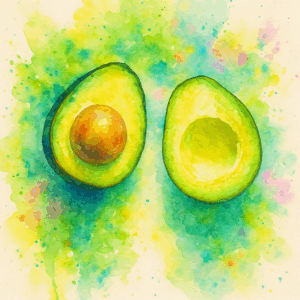Learn French with this song from Professor Rollet! Pascal Rollet is a professor and musician who has been composing songs that focus on a particular linguistic structure that gets reinforced in meaningful lyrics, set to sophisticated yet catchy contemporary music and instrumentals. Find the full song here.
Start quiz, type what you hear, then join the conversation.
Did you find this one challenging or easy? Did you hear something diffferent? What surprised you? What levels did you complete? Comment below and share what’s opening up for you with this quiz.
Learn French with this song from Professor Rollet! Pascal Rollet is a professor and musician who has been composing songs that focus on a particular linguistic structure that gets reinforced in meaningful lyrics, set to sophisticated yet catchy contemporary music and instrumentals. Find the full song here.
Learn French with this song from Professor Rollet! Pascal Rollet is a professor and musician who has been composing songs that focus on a particular linguistic structure that gets reinforced in meaningful lyrics, set to sophisticated yet catchy contemporary music and instrumentals. Find the full song here.
Expressions
What’s opening up for you with this clip?
Listen to the full song:
The snippet in English
Find a translation of this snippet here, how much of this did you hear?
En hiver, j’ai horreur des pull over /
quand il neige, tu as peur des pièges /
s’il y a du brouillard, il est en retard /
quand il fait du vent, on est au courant /
au printemps, nous sommes contents /
s’il pleut, vous êtes heureux /
s’il y a une tempête, vous avez envie de.. fête!
In winter, I hate sweaters /
when it snows, you’re afraid of traps /
if it’s foggy, he’s late /
when it’s windy, we know about it /
in spring, we’re happy /
if it rains, you’re happy /
if there’s a storm, you want to… party!
English translation by Deepl. Check it.
What does “pull over” mean?
Pull-over (or pull) in French means sweater or jumper—a knitted garment worn on the upper body, usually over a shirt.
Example: Il porte un pull-over en laine
(He’s wearing a wool sweater)
– Often shortened to just pull in casual speech: un pull rouge
– From English pull over (as in clothing pulled over the head), but in French, it refers only to clothing—not the driving command.
In France, pull is common and used for all types of sweaters. In Quebec, chandail is the usual term, though pull is also understood. In Francophone Africa, pull is widely used, especially in urban areas or formal French.
What does “des pièges” mean?
Des pièges means traps—either literal (for animals or people) or figurative (tricky situations, hidden dangers).
Example: L’examen était plein de pièges
(The exam was full of traps)
– Singular: un piège
– Verb: piéger (to trap, to trick)
It’s often used in expressions like:
– tomber dans le piège (to fall into the trap)
– éviter les pièges (to avoid the traps)
In France, piège is used in both literal and metaphorical contexts. In Quebec, it’s common in the same way, especially in school or legal settings. In Francophone Africa, it’s used similarly, often in describing challenges or deceit.
What does “on est au courant” mean?
On est au courant means We’re aware or We know about it. It’s used to confirm that someone is informed or up to date.
Example: Pas besoin de répéter, on est au courant (No need to repeat, we’re already aware)
– être au courant = to be in the know / to be informed
– Can apply to on, je, ils, etc.: je suis au courant, ils sont au courant
In France, this is a common everyday phrase, used in both casual and professional settings. In Quebec and Francophone Africa, it’s also widely used with the same meaning, often replacing longer explanations with a simple acknowledgment.
Discover the Rhythms of French with Music: Enhance Your Learning Experience
Music, with its catchy melodies and repetitive structures, is a powerful tool for language learners. It not only entertains but also reinforces linguistic patterns, making it easier to grasp and remember new vocabulary and phrases.
Why Learn French with Music?
- Cultural Immersion: French music offers a window into the rich tapestry of French culture, traditions, and history. By exploring different genres – from classic chansons to contemporary pop – you gain deeper insights into the French way of life.
- Memorable Vocabulary: Lyrics in songs are often catchy and repetitive, aiding in memorization. Music acts as a mnemonic device, making retention of new words and phrases more effective.
- Pronunciation Practice: Singing along with French songs is a fun way to improve your accent and intonation. It helps in mimicking native speech patterns and rhythms.
- Emotional Connection: Music evokes emotions, making the learning experience more engaging and memorable. You’re more likely to recall phrases associated with emotions stirred by a song.
- Diverse Learning: Through songs, you’re exposed to a variety of dialects, slangs, and expressions used in everyday French, broadening your understanding of the language.
Why Practice Transcriptions with Music to Improve Listening in French?
- Enhanced Listening Skills: Transcribing lyrics sharpens your listening abilities. It challenges you to distinguish words and phrases within the flow of music, improving your auditory comprehension.
- Contextual Learning: Understanding the lyrics within the context of a song helps in grasping the nuances of French language usage, such as idiomatic expressions and colloquialisms.
- Active Engagement: The process of transcription is an active learning exercise. It encourages you to focus intently on the language, enhancing concentration and retention.
- Grammar and Structure Exposure: Analyzing song lyrics exposes you to different grammatical structures and sentence constructions, contributing to a deeper understanding of French grammar.
Try other clips from songs on site today!
What did you love about this?
Comment below with your feedback! Tells us what you think. Send a note or leave a comment below. We appreciate the feedback. Also, we’re always looking for partners to build this site and grow the content available.








